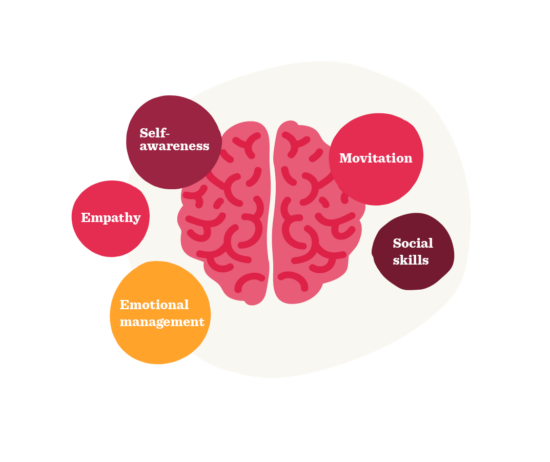Introduction
In the past, people might have described the HR department (and its team members) as a cost center, a group of party planners, the experts in soft skills, or a department that lacked business savvy. Thankfully, those misconceptions have evolved over the last several years.
People realized HR’s actual value during the pandemic. Those who didn’t get it previously now understand: People are the heart of the business. As the professionals whose expertise relates to all things people, HR is indeed key to business success. That’s especially true when people’s needs are paramount in today’s workplace.
As experts in people (attracting, retaining, organizing, developing, supporting, and engaging), CHROs are integral executives who can ensure that a business continues to run, even in times of crisis. It’s time for the C-suite to understand what HR can deliver and what they can expect from these essential members of the C-team.
This sample scenario from a past Society for Human Resource Management (SHRM) exam illustrates just how complex the issues HR addresses are:
“In the past two years, a company has been acquired by two different organizations. Each acquisition resulted in multiple layoffs; one even included the CEO being terminated. For a while, the morale of the remaining employees was very low because they had worked with some of the laid-off employees for years. To help increase morale the company re-evaluated their total rewards structure to be more beneficial to all employees. Many employees suffer anxiety because of the increased workload and the fact their long-time friends are gone while they remain.
“What is the most important first step for the HR director to take to mitigate the effects of survivor syndrome being experienced by remaining employees?”
Indeed, HR must take steps to mitigate the effects of survivor syndrome, but first, let’s look at three competencies a leader must possess to address everything that’s happening in this company: emotional intelligence, a big picture view of the business, and knowledge of organizational design.
Emotional intelligence
The HR Daily Advisor describes emotional intelligence as “being cognizant of your own emotions and the emotions of those around you, as well as how they are impacted by daily occurrences. Being aware of others’ emotions is a major asset, as it can improve interpersonal and working relationships and make the organization run more smoothly.”
For leaders, emotional competency is even more critical. Other people in the organization look to executives and leaders to set the tone and model how they should react to ambiguity, pressure, and risks.
In the SHRM scenario, there are many reasons why a leader needs emotional intelligence to lead the organization effectively:
- A CEO’s termination
- Low morale
- Increased anxiety due to “survivor syndrome” after layoffs

There may be a major disconnect regarding emotional health and intelligence in organizations. However, if companies leverage everything HR leaders have to offer, that disconnect is not insurmountable. Furthermore, if a CEO finds that they aren’t as emotionally intelligent as they prefer, they should rely on and adopt the insights their CHRO can provide.
Big picture view of the business
Understanding the big picture requires taking a step back from one’s functional role and department. That can be difficult for finance, supply chain, or marketing leaders. Those departments invest deeply in specific functions of the business. It’s much easier for them to get stuck in the details relevant to their area of expertise.
“We all know what it feels like to get stuck ‘in the weeds’—being so deep in trying to solve a problem that we lose all perspective about why we’re doing what we’re doing,” according to Kevin Kruse, author of Great Leaders Have No Rules. “Even practiced senior leaders whose jobs require a 30,000-foot cruising altitude sometimes get too caught up in the details to be effective.”
HR professionals naturally focus on attracting, retaining, developing, and compensating an organization’s people. Their role requires them to see the big picture—their function intersects with every element of the business.
To be effective, HR must grasp each functional area of a business, spot trends and risks, and evaluate how every decision will impact people. Taking a step back to see the big picture is a skill HR professionals must develop early in their careers.
In the SHRM scenario, the company must take a big picture view to address that it:
- Was acquired by two different organizations
- Needs to re-engage its people based on the many changes
Being acquired by another company is challenging for every part of the business, but it’s easy to argue that the human element is the most complex of those challenges. Not only are there decisions about reductions in force and reassignments, but every other change that comes from an acquisition also touches people—from new systems to locations to products and more.
Acquisitions may create massive changes in an organization. However, if the business leverages its HR leaders for their big picture view, it can minimize the disruptions. In addition to leveraging skills from leaders in finance or administration, a CEO must turn to their CHRO for the big picture view that can help engage their people and prevent organizational chaos.
Organizational design
At a minimum, inefficiencies in the organizational design can make for complex decision-making processes and excessive bureaucracy. Without the proper operational structure in place, companies also face loss of financial results.
When measuring the organizational health of companies during the COVID-19 pandemic,“[t]he ability to establish a stable backbone is what guaranteed sustainable organizational health,” according to McKinsey.
“Operational discipline and codified approaches can reduce frustration and help avoid re-inventing the wheel. Clarifying roles ensures that people understand what’s expected of them alongside their contributions to the bigger picture. Lastly, practicing responsible financial management—while perhaps a bit obvious—deserves a callout as a hallmark of healthy organizations.”
In the scenario from SHRM, COVID-19 didn’t impact the organization significantly, but we still see areas where know-how regarding organizational design is required to lead the business effectively. Specifically, the company in the scenario:
- Experienced multiple layoffs
- Had an increase in workload for existing employees
When faced with these challenges, a strong CHRO leader is essential. This is the executive who can plan a restructure and integrate new organizational cultures and goals. The CHRO will also provide insights around how to incorporate new products or services and possibly consolidate complementary business areas that come with being acquired.
As organizations prepare for the future, McKinsey said the pressing questions for many organizations include: Who are we, how do we operate, and how do we grow? Once they understand that, they’re ready to take on whatever challenges lie ahead.
“These are the questions leaders are asking as they prepare their organizations for the first true information revolution,” McKinsey continued. “The winners of this paradigm shift will be distinguished by their flexible operating models based around networks of teams, unprecedented industry collaboration, and more human companies defined by purpose.”
Again, without people insights and an understanding of how to design an organization, companies risk losing top talent, institutional knowledge, and productivity—all of which will eventually impact overall results.
CHROs as candidates for the CEO role
The skills CHROs bring to the table (emotional intelligence, big picture view, and organizational design) are also the skills successful CEOs require. Additionally, CEOs must develop the culture, the people, and the workplace to ensure the work happens and the company continues to thrive—all things in which CHROs have deep expertise.
“Historically, for leaders, the HR function has been seen as a bit of a dead end—a department that a particularly talented employee might master but never transcend. But with the heightened attention to talent and culture, and the increasing interest in having those functions led by well-rounded executives, it isn’t difficult to imagine a day when the CHRO job becomes a natural pathway to the CEO role,” according to an article published by Quartz.
Thankfully, CHROs are starting to fill the CEO seat more and more. In December 2021, Chanel announced that the CHRO from Unilever, Leena Nair, had been selected as Chanel’s next CEO.
According to Forbes, “Nair’s background of 30-years at Unilever, culminating in the top HR spot, garnered her a global reputation for progressive and human-centered leadership, delivering significant business impact.”

In her 30-year career with Unilever, there’s no doubt Nair’s professional experiences prepared her to serve as CEO. She began as a management trainee in India in 1992. Since that time, according to Nair’s LinkedIn profile, she’s held a variety of roles throughout her career:
- Chief human resources officer and member of the Unilever leadership executive
- SVP leadership and organisation development and global head of diversity and inclusion
- Executive director HUL and VP HR South Asia
- General manager HPC and foods and head of management development
- General manager HR of Hindustan Lever IND
- General Manager HR of Home and Personal Care India
- HR manager of Home and Personal Care C India
- HR manager of Hindustan Lever IND
- Management development planning manager of Hindustan Lever
- Employee relations manager of Hindustan Lever
- Factory personnel manager of Lipton (India) Ltd
Considering today’s workplace environment, engagement challenges, and global priorities, Naira’s deep understanding of global HR operations provides the expertise and understanding organizations need from their top leader.
“If Chanel wants to be more known for its core and human values, communicating that with a strong stance is important. Leena has an extensive background in HR, promoting core values and positioning,” a retail consultant told Forbes.
To be well-prepared and effective business leaders, executives can’t just be specialists. They need to understand HR, operations, finance, marketing, and technology. It’s not just beneficial for organizations to elevate HR leaders to senior roles. It’s also important that people seeking to enhance their business acumen spend time in a variety of functions.
Recommended For Further Reading
Conclusion
Today’s companies are more than just the products and services they deliver. Consumers, employees, and global stakeholders expect business impact, but they also demand human-centered leadership from the organizations they encounter.
Most organizations are just starting to scratch the surface when it comes to utilizing their HR leaders’ expertise. But as more CHROs are promoted to CEO and HR professionals demonstrate their value by expertly addressing unforeseen business challenges like COVID-19, HR is debunking the long-standing skepticism around what HR executives can deliver.
As the SHRM exam scenario illustrates, HR is at the crux of the organization and has a significant impact on today’s most pressing business challenges.
HR leaders continue to mitigate the effects of the modern workforce’s paradigm shift, the impact of COVID, and a variety of evolving challenges. Their response to that shift depends on their culture, location, and leadership. We know one thing for sure: Organizations will be better off if they leverage the emotional intelligence, big picture view of the business, and organizational design competencies that today’s top CHROs possess.
These strengths enable HR leaders to help companies rise above any challenge they face and position them as prime candidates for the CEO position.

Meet Bob
An HR platform such as Bob offers a one-stop-shop for all things people. It sits at the center of your HR ecosystem, is fully customizable, and grows with your organization.
For HR, it delivers automation of many common processes, allows greater oversight and visibility of the business, and centralizes all people data in a secure, user-friendly environment.
For managers, it provides access to data and insights to help them lead more effectively and streamline processes.
For employees, it’s the tools and information they need to connect, develop, and grow throughout their journey.
In a short time, Bob can be deployed to enable communication, collaboration, and connectivity that drives stronger engagement, productivity, and business outcomes.
